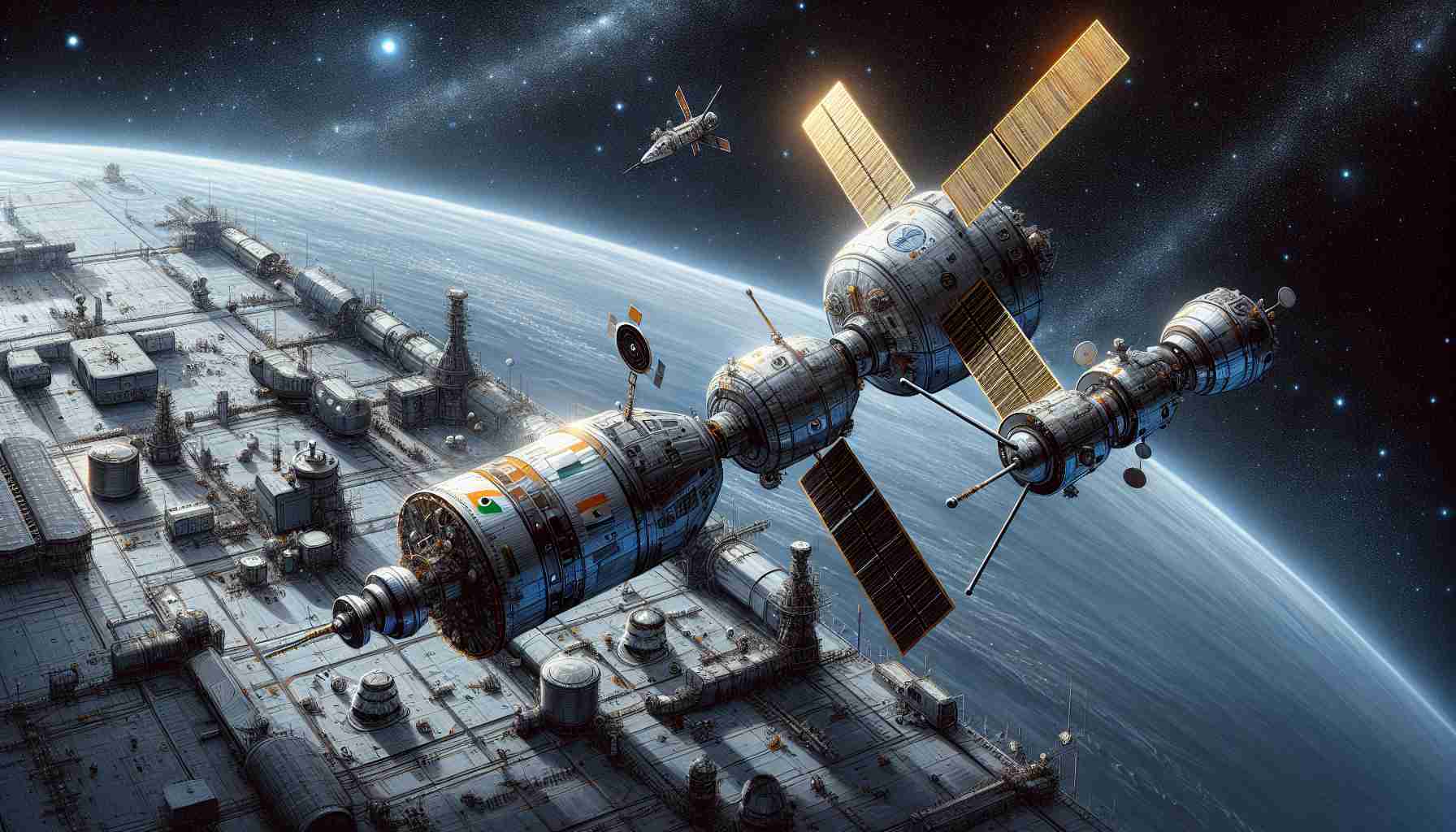In a groundbreaking achievement for its space program, India has successfully performed space docking, joining the ranks of an elite group of nations. The Indian Space Research Organisation (ISRO) completed this significant milestone during the Space Docking Experiment (SpaDeX) on Thursday morning, further cementing its position among the world’s leading space-faring countries.
This success highlights ISRO’s advanced technological capabilities and lays the groundwork for the next generation of missions. By mastering space docking—a complex procedure previously accomplished only by Russia, the United States, and China—India has taken a crucial step toward asserting itself as a key player in global space exploration.
At approximately 10 AM, ISRO confirmed the successful docking of its spacecraft after a precise maneuver that transitioned from a 15-meter hold point to a 3-meter hold point. This operation involved critical steps such as retraction and rigidization, which were executed flawlessly, demonstrating India’s maturity in space docking technology. The docking was facilitated by the indigenous Bhartiya Docking System (BDS), allowing the satellites to achieve a safe docking speed of just 10 millimeters per second, significantly minimizing the risk of collision.
With this accomplishment, India not only enhances its technological prowess but also increases its independence in space technology. The SpaDeX mission paves the way for future ambitious endeavors, including potential missions to the Moon and Mars, and supports essential operations such as resupply and crew interchange for space stations. This notable progress positions India as a formidable contender in the global arena of space exploration.
Expanding Horizons: The Implications of India’s Space Docking Achievement
India’s successful space docking marks not just a technological milestone but a shift in the dynamics of global space exploration. This achievement by the Indian Space Research Organisation (ISRO) could redefine India’s role in international space activities and has broader implications for society, culture, and the global economy.
As India joins the ranks of elite space-faring nations, it fosters a sense of national pride and inspires future generations to pursue careers in science, technology, engineering, and mathematics (STEM). This new era of achievement can lead to increased investment in education and research, ultimately contributing to a more knowledgeable and skilled workforce capable of supporting the country’s ambitions beyond Earth. Moreover, it enhances public interest in space, stimulating discussions about humanity’s place in the cosmos and the responsibilities that come with exploration.
From an economic perspective, India’s advancements in space technology are likely to have a ripple effect. The burgeoning space sector is poised for growth, creating job opportunities and attracting foreign investment. Enhanced capabilities in satellite technology and space missions may offer commercial opportunities, such as satellite servicing and interplanetary exploration, boosting the country’s presence in the global space economy, which is projected to reach hundreds of billions of dollars in the coming years.
On the environmental front, the implications of space exploration are dual-faceted. While advancements in space technology can contribute to better Earth observation and climate monitoring, the increased launch frequency associated with more missions raises concerns about space debris and the environmental impact of rocket launches. Sustainable practices must be prioritized to ensure that the progress made does not exacerbate existing environmental issues.
Looking to the future, India’s success with space docking sets the stage for more ambitious missions, including lunar and Martian explorations. These endeavors could lead to scientific discoveries that enhance our understanding of the solar system and contribute to technological advancements on Earth. Additionally, the potential for international collaborations may arise, fostering global partnerships in shared endeavors that address common challenges, such as climate change and resource scarcity.
In conclusion, India’s achievement in space docking is a transformative event that paves the way for broader implications across multiple domains—societal pride, economic growth, environmental considerations, and future technological endeavors. As ISRO continues to advance its capabilities, the world will undoubtedly observe how this emerging space power influences the trajectory of global space exploration.
India’s Space Docking Success: Implications and Future Prospects
India’s recent achievement in space docking through the Space Docking Experiment (SpaDeX) marks a significant milestone for both the Indian Space Research Organisation (ISRO) and the broader field of international space exploration. As ISRO joins the ranks of the world’s leading space-faring nations—Russia, the United States, and China—it is crucial to explore the implications of this success and consider the future trajectories of India’s space ambitions.
FAQs About India’s Space Docking Achievement
Q: What is space docking, and why is it important?
A: Space docking refers to the joining of two spacecraft while in space. This procedure is essential for operations like crew transfers, resupply missions, and assembling larger structures in orbit. Docking technology enhances operational flexibility and safety in crewed and uncrewed missions.
Q: What technology was used in the SpaDeX mission?
A: The mission utilized the indigenous Bhartiya Docking System (BDS), which enables spacecraft to dock with minimal impact speeds—just 10 millimeters per second—significantly reducing the risk of collision during docking maneuvers.
Q: What are the next steps for ISRO following this achievement?
A: Following the success of SpaDeX, ISRO may focus on missions involving crewed spacecraft, aiming toward potential lunar and Martian explorations. Future projects could include building and servicing space stations and deep-space missions.
Pros and Cons of India’s Space Docking Capabilities
Pros:
– Enhanced Independence: India’s self-sufficiency in docking technology reduces reliance on international partners for critical space operations.
– Increased Mission Scope: Mastering docking procedures allows ISRO to engage in more complex missions, including international collaborations in space exploration.
– Technological Leadership: Success in space docking places India among the elite group of space powers, boosting its global standing in scientific and technological advancements.
Cons:
– Budget Constraints: Funding for ambitious space missions could be limited, potentially constraining ISRO’s ability to capitalize on this achievement.
– Technical Challenges: Continued advancements in docking technology may require significant research and development, posing risks associated with technical failures during future missions.
– International Competition: India’s success in space could escalate competition in space endeavors, which may lead to geopolitical tensions in the arena of space exploration.
Future Predictions and Strategic Insights
As ISRO pushes forward with its capabilities, several outcomes can be anticipated:
1. Collaborative International Projects: Enhanced technology can position India as a preferred partner in global space missions, potentially leading to collaborative efforts with NASA, ESA, and others on deep-space explorations.
2. Commercial Space Initiatives: With the increased capability for docking, opportunities for commercial ventures in satellite servicing and space logistics will likely arise, opening new revenue streams for ISRO.
3. Strategic Space Policy Developments: The success of SpaDeX may prompt the Indian government to refine its space policy, emphasizing global partnerships while fostering a robust domestic space industry.
In conclusion, India’s entry into the space docking domain is not just a technical milestone; it symbolizes the potential for greater advancements and collaboration in the vast expanse of space. As ISRO accelerates its efforts in this field, the implications for future space exploration and international relations will be profound, making India an indispensable player in the next era of space discovery. For more insights into aerospace developments, visit ISRO’s official site.














